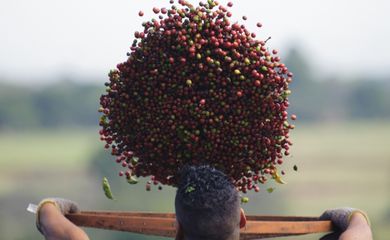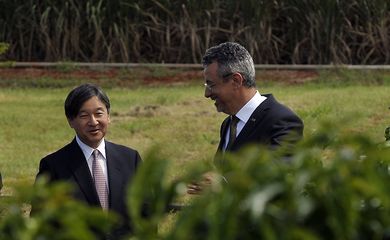Brazil hosts world’s top quality coffee contest
The world’s top coffee producer, with over 60 sacks harvested this year—36 percent of the global production—Brazil has also gained a prominent position in the production of high-quality and specialty coffees.

Proof thereof is the main competition over the quality of specialty coffees around the world—to be held in October in Brazil. The Cup of Excellence 2018, developed in partnership with the Brazilian Association of Specialty Coffees (BSCA), the Brazilian Trade and Investment Promotion Agency (Apex-Brasil), and the Alliance for Coffee Excellence (ACE).
The contest includes two categories: Pulped Naturals—directed at those who use a wet method to produce coffee, with the skin or pulp of the beans removed—and Naturals, for producers of dry or natural coffees.
Sacks for $14 thousand each
Last year, the competition aimed at washed coffees saw the highest bid in history—$14 thousand for a 60-kilo sack of the winning coffee. The average price in the category stood at $1.8 thousand a sack. The competition for dry-produced coffee, in turn, had the highest amount paid for natural coffee on the planet—$9.95 thousand per sack.
In 2018, the international stage of the Cup of Excellence 2018 will be held from October 15 through 21 near the city of Guaxupé, Minas Gerais state, with cooperative Cooxupé, SMC Specialty Coffees as hosts.
Brazil in the global spotlight
Technology engineer Igor Brandão, manager for agribusiness with Apex-Brasil, said that “today Brazil stands out in the specialty coffee market due to its good practices in production, sustainability, and handling, attained as a result of the efforts of its growers.”
He noted that last year’s Cup of Excellence saw a Minas Gerais producer from Fazenda Bom Jardim, win over $250 thousand lots of coffee at the record-breaking price of $14 thousand a sack.
“Critics and specialists from around the world have praised and recommended quality coffee from Brazil. We’re close to overcoming nations with a tradition in this niche market—like Colombia—in both quantity and quality. What Brazil may still lack is a major international brand of quality coffee—like Venezuela’s Juan Valdez, which brings together a number of growers,” Brandão stated.
Brandão went on to say that Brazil main buyers of Brazilian specialty coffees are the US, Germany, Japan, Belgium, and Italy. “It’s a market that tends to grow and expand to other countries, like China, where Brazil will take part in a major international fair to be held in November, in Shanghai.”
“Brazil, the Coffee Nation”
With a focus on the commercial promotion of Brazilian specialty coffees in markets overseas, BSCA and Apex-Brasil joined efforts to devise an initiative dubbed Brazil, the Coffee Nation. The goal is to boost the image of Brazilian coffee across the world and make the country known as a quality supplier with the use of state-of-the-art technology developed through the research conducted in the country.
The project also aims to publicize the exclusive tracking systems and quality certificates adopted in the Brazilian production of specialty coffees, which evinces social and environmental responsibility as well as the incorporation of competitive advantages into the production of Brazilian goods.
Launched in 2008, the project is slated to end in May 2020, and covers such target markets as Germany, Australia, Canada, China, South Korea, the US, Italy, Japan, Norway, New Zealand, Poland, the UK, Russia, Taiwan, and Turkey for raw specialty coffees; and Argentina, China, and the US for products in the roasting and grinding industries.




